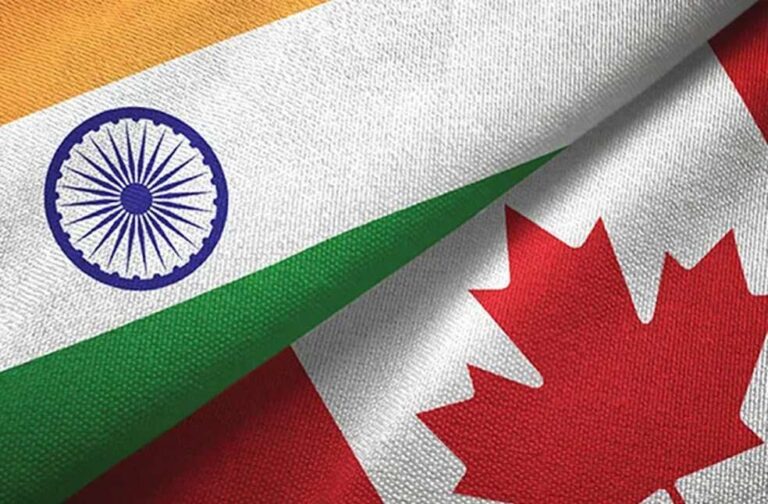New Delhi/ Ottawa: A long-simmering diplomatic dispute between India and Canada has reignited, with both nations expelling diplomats following accusations that Indian government agents were involved in activities threatening Canada’s public safety.
The Latest Developments
The row escalated on Monday after India’s Ministry of External Affairs confirmed that it had received diplomatic communication from Canada indicating that Indian diplomats were considered “persons of interest” in an investigation in Canada.
Tensions reached a breaking point last year when Canada launched an inquiry into the possible involvement of Indian agents in the killing of Hardeep Singh Nijjar, a Sikh separatist leader, on Canada’s west coast.
India has denied any involvement in the killing, calling the accusations ‘absurd.’ On Monday, New Delhi reiterated its stance, rejecting what it described as ‘preposterous imputations’ from Canada and announcing the withdrawal of several Indian diplomats and officials from Canadian soil.
Hours later, Canada responded by expelling six Indian diplomats, citing threats to national safety.
Canada’s Position
Prime Minister Justin Trudeau stated that the Royal Canadian Mounted Police (RCMP) had identified ‘clear and compelling evidence’ of Indian government agents engaging in activities threatening public safety.
My statement on the evidence brought forward by the RCMP against agents of the Government of India:https://t.co/kC6ZXzXXsG
— Justin Trudeau (@JustinTrudeau) October 15, 2024
“These activities include covert intelligence gathering, coercion of South Asian Canadians, and involvement in over a dozen threatening acts, including murder,” Trudeau said during a news conference.
The RCMP confirmed it had presented evidence to the Indian government linking Indian agents to criminal activities, including homicides and interference in democratic processes.
Canada’s Foreign Affairs Minister Melanie Joly added that the six expelled Indian diplomats were directly connected to the Nijjar case.
India’s Response
In a statement, India’s Ministry of External Affairs dismissed Canada’s allegations, accusing the Canadian government of using the investigation to ‘smear India for political gains.’ India said no evidence had been shared by Canada, despite repeated requests.
Our response to diplomatic communication from Canada:https://t.co/TepgpVVPxp
— Randhir Jaiswal (@MEAIndia) October 14, 2024
New Delhi summoned Canada’s charge d’affaires, condemning the unacceptable targeting of its diplomats and expressing concern over their security. India announced it would recall its High Commissioner and other officials and warned of potential retaliatory measures.
In a tit-for-tat response, India expelled six Canadian diplomats, including the acting high commissioner, giving them until October 19 to leave the country.
Historical Context
The diplomatic crisis stems from the killing of Hardeep Singh Nijjar on June 18, 2023, outside a Sikh temple in Surrey, British Columbia. Nijjar, a prominent advocate of the Khalistan movement- a campaign for a sovereign Sikh state in India’s Punjab region- was a Canadian citizen.
The Indian government considers the Khalistan movement a national security threat and has pressured Western countries to crack down on separatist leaders abroad. While India has denied any involvement in Nijjar’s assassination, it accused him of terrorism- a claim rejected by his supporters.
The situation escalated in May 2024 when Canadian police arrested four men, all Indian nationals, in connection with Nijjar’s killing. The RCMP announced it was investigating whether the suspects had ties to the Indian government. India dismissed the arrests as politically motivated.

What’s Next?
The diplomatic standoff has heightened tensions between the two countries, with further retaliation from both sides a possibility. Bilateral relations remain strained, and the dispute threatens to impact diplomatic cooperation and trade ties between India and Canada.
Both governments have withdrawn several diplomats and reduced consular services, leaving uncertainty over how the situation will evolve.



